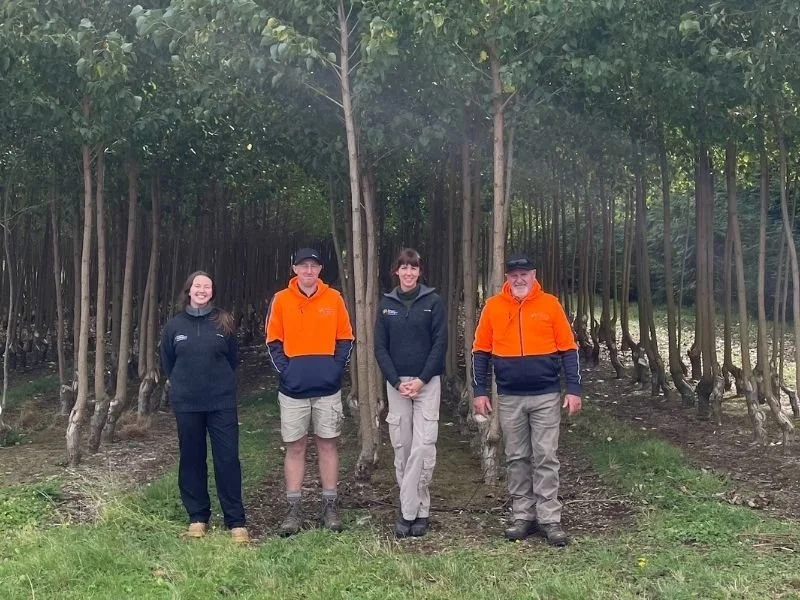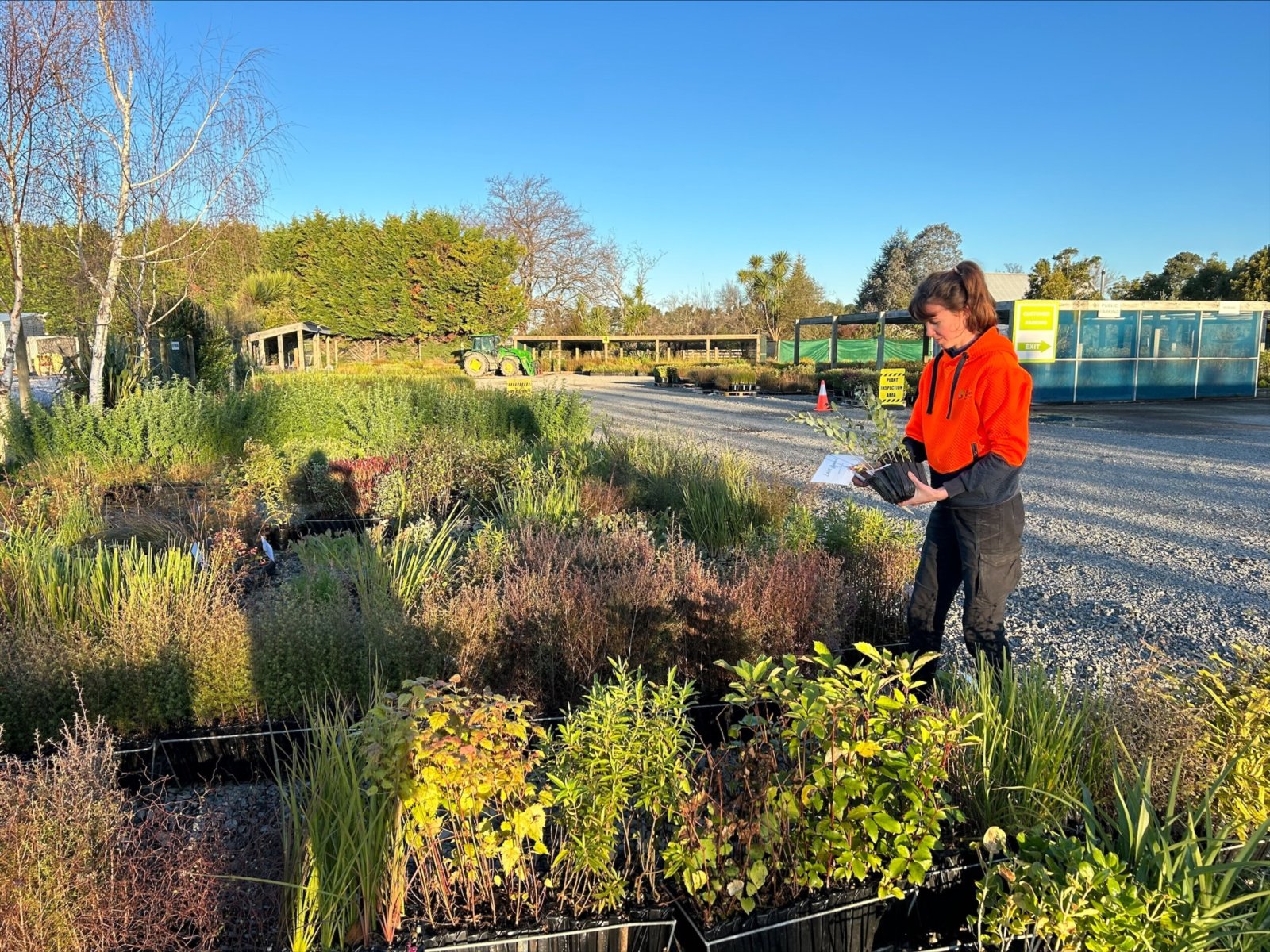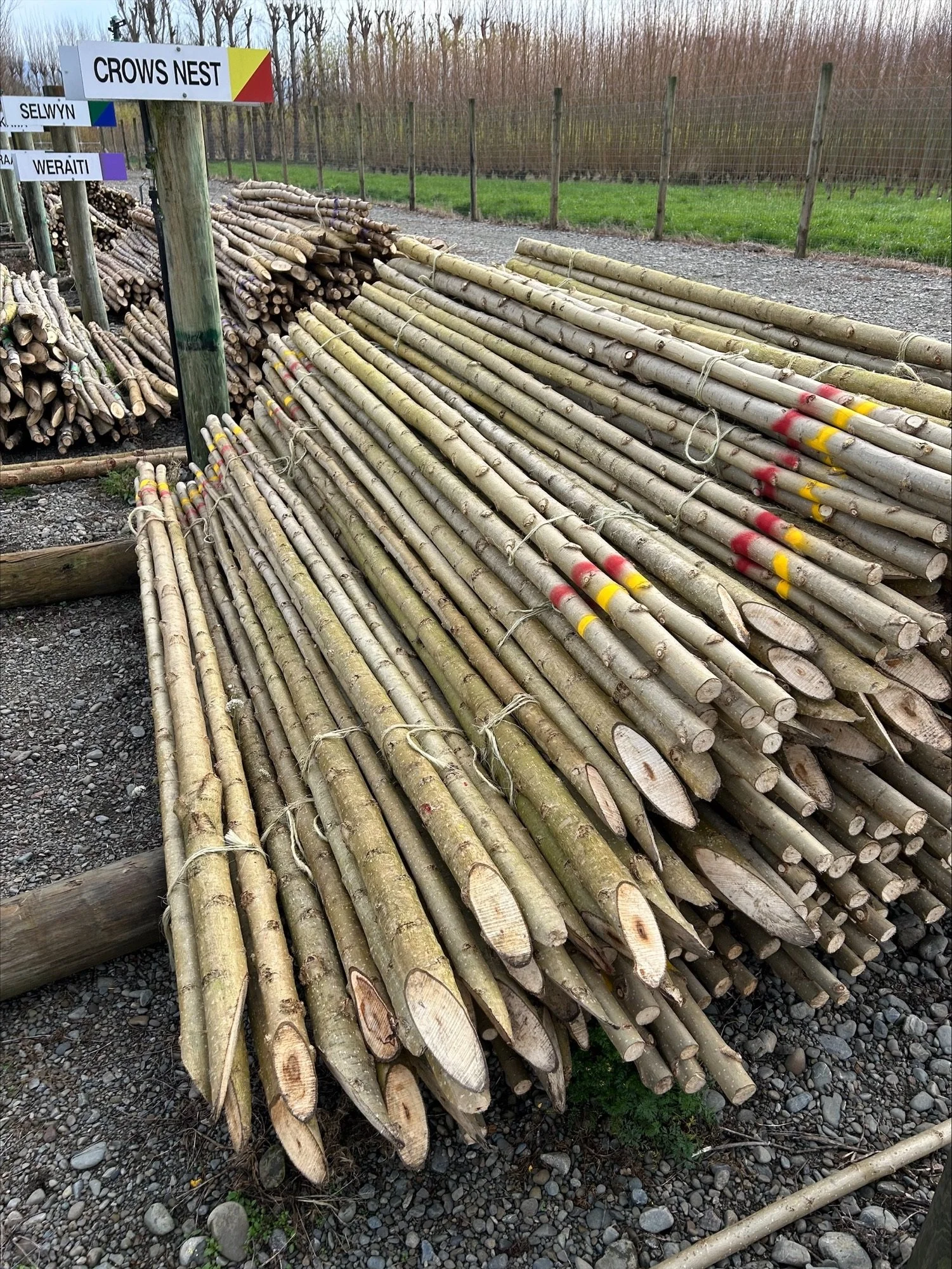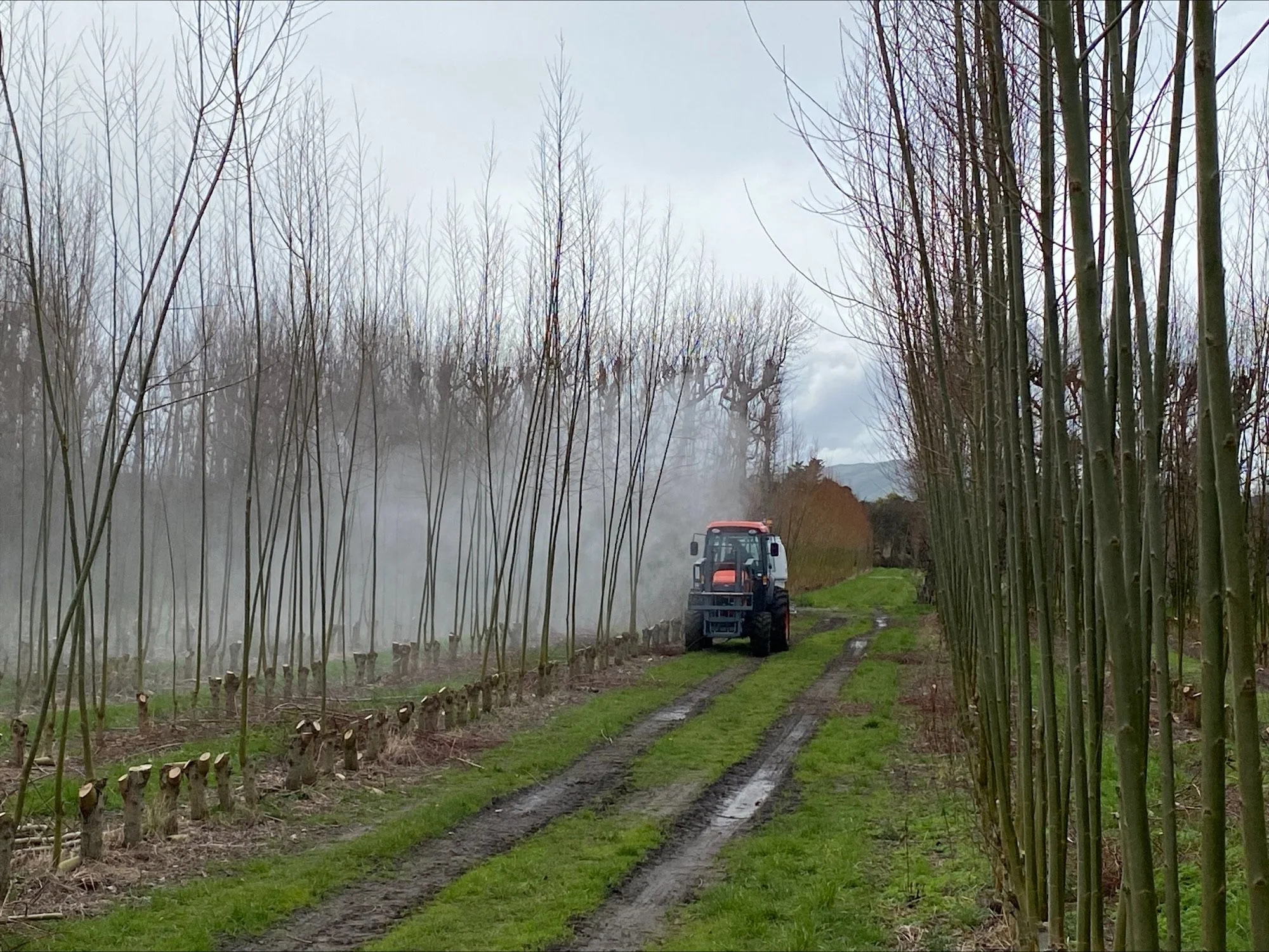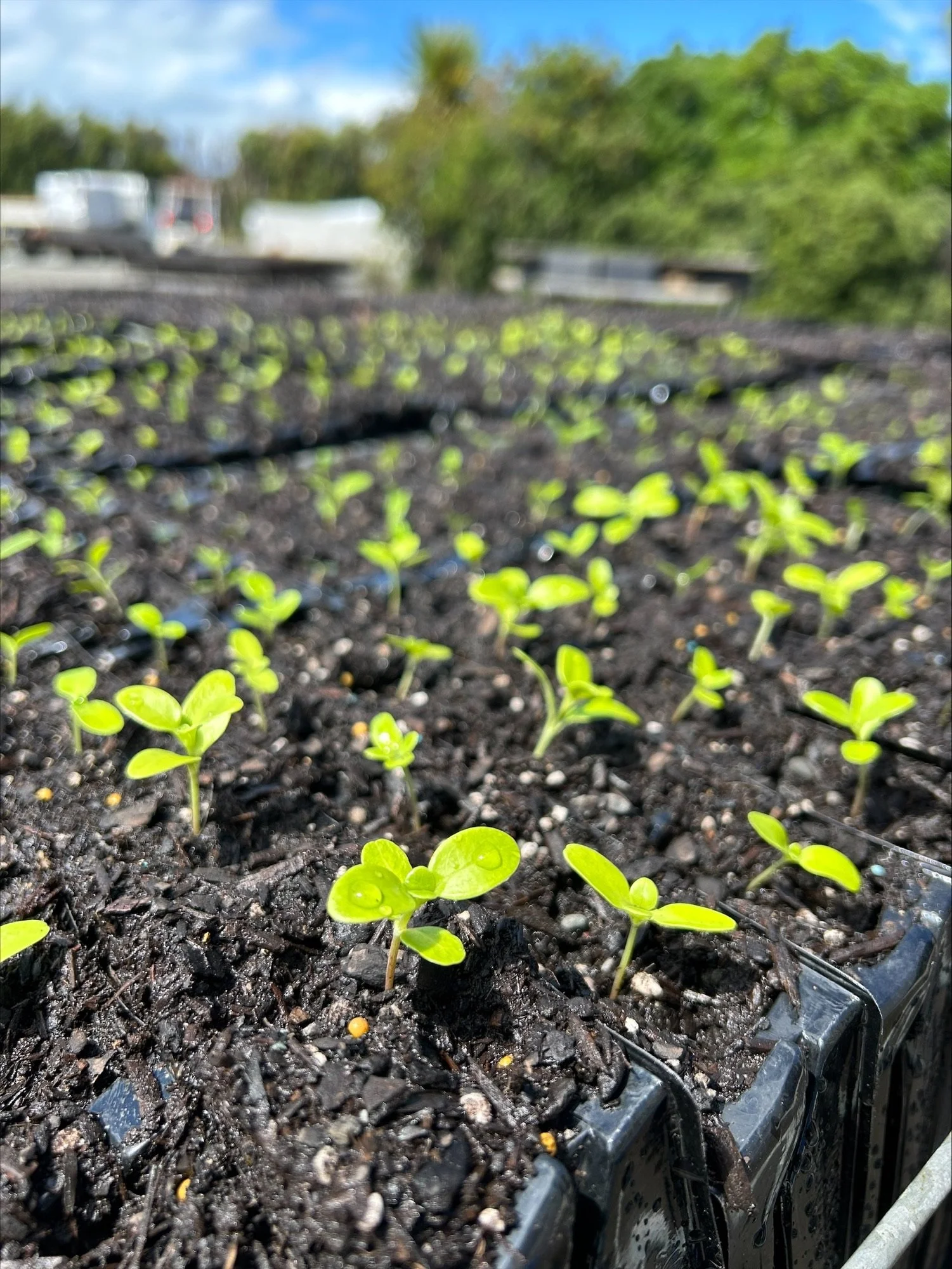Protecting the Greater Wellington region with Plant Pass
Plant Pass Certification Journey
Akura Plant Nursery in Masterton was an early adopter of Plant Pass, pre-registering back in late 2021 and completing certification in early 2023. Owned by Greater Wellington Regional Council (GWRC), the nursery is a producer of poplar and willow pole species, and also procures eco-sourced native and exotic seedlings from other Plant Pass participating nurseries.
Plant Pass is a voluntary certification that supports a systematic approach to biosecurity risk management in nurseries. This enables plant producers to protect their plants, their customers and our environment from pest and pathogen threats.
Rachel Scanlan is lead supervisor at Akura. “Plant Pass is a really good resource,” she says. “We're looking for other producers on the Plant Pass website who are accredited and who can supply good quality eco-sourced seedlings.”
Akura Plant Nursery
Location: Masterton
Plant Pass Number: PPN:141
Standards: Plant Pass Core Standard certified
Nursery: Produces poplar and willow pole species, and also procures eco-sourced native and exotic seedlings from other Plant Pass participating nurseries
Procuring from local nurseries
Akura has been supplying tree species for over 30 years, originally set up to produce poplar and willow for hillside erosion programmes and for river bioengineering purposes.
"Akura has just under 24 hectares in total,” Rachel says. “Our poplar and willow are field grown and we use a coppicing method to harvest our pole material. Each winter, we produce 20-25,000 poles of poplar and willow species. Over the last 10-12 years, our works have evolved and we're now procuring native and exotic seedlings for GWRC’s Environmental Restoration programmes and planting projects.”
Akura sells predominantly Wairarapa eco-sourced plants grown from seeds or cuttings collected from populations of locally occurring plants.
“My team is now working with wider internal projects in the council. One example is the Recloaking Papatūānuku Restoration project. Akura doesn't do any of the propagation or growing of the native seedlings. We offset this opportunity to local nurseries in our region where possible.
“There's a mixture of eco-sourcing that's carried out by GWRC and the remainder is done by the nurseries with the checks and balances adhered to, to make sure everything's eco-sourced and records are maintained. This seed is distributed to our growers for propagation, then returns to Akura as a rooted seedling, which we then collate into the orders ready for planting.”
Plant Pass – leading by example
Akura takes a proactive approach to biosecurity to minimise the likelihood of a biosecurity incursion resulting from a council planting programme. Akura joined the Plant Pass scheme because it has a responsibility to lead by example, by demonstrating a commitment to following best-practice biosecurity processes and promote nursery biosecurity for conservation purposes.
Rachel was involved in the Plant Pass accreditation journey four years ago, becoming one of the first adopters of the scheme.
"It was quite a rigorous process,” she recalls. “But the infrastructure that we've got at our nursery was quite viable to putting in what was required – in terms of things like a disinfectant area, goods in/goods out, check points and inventory zoning areas.
“As stock comes in, it gets checked for any biosecurity elements before it's then put into the main nursery area and collated as an order to be picked up and taken off site for planting.
“For us, at the time of going through the certification process of Plant Pass, we were tight on staff resource with just myself and one other Nursery Officer involved. So factoring the staff resource into that overall integration of new processes was probably the main struggle, but once the hard infrastructure is set up, it is a great foundation to build on with adhering to formal processes and monitoring.”
Future developments
GWRC is also developing a new pole nursery south of Carterton, called Te Uru o Tāne, to meet the region’s growing demand for erosion control and riparian management trees. Formerly Daleton Nursery, the 28-hectare project is a collaboration between GWRC, Carterton District Council and Ngāti Kahukuraāwhitia. Development is ongoing, with the first poplars and willows planted in 2024 and the first harvest anticipated in 2027.
“It’s using treated wastewater to irrigate the poplar and willow stool beds,” Rachel says. “It’s still a capital works project at the moment, due to come under our team’s management in early 2026 and we’d be looking at using Plant Pass there as well.”
Communicating Plant Pass value
Akura uses the Plant Pass certification in their communications, including their website, brochure and letters to landowners that go out twice a year.
“We've got the logo at our nursery. We're open to the public during the planting season, which runs from May through to September, and that's when landowners and the general public are coming in to pick up plants. So they see our Plant Pass certification there.”

